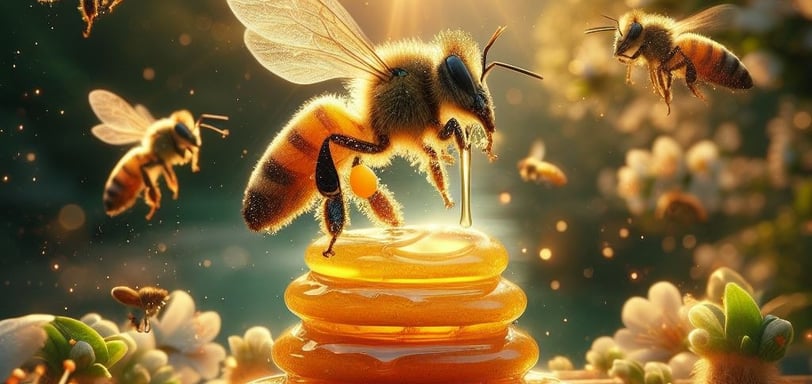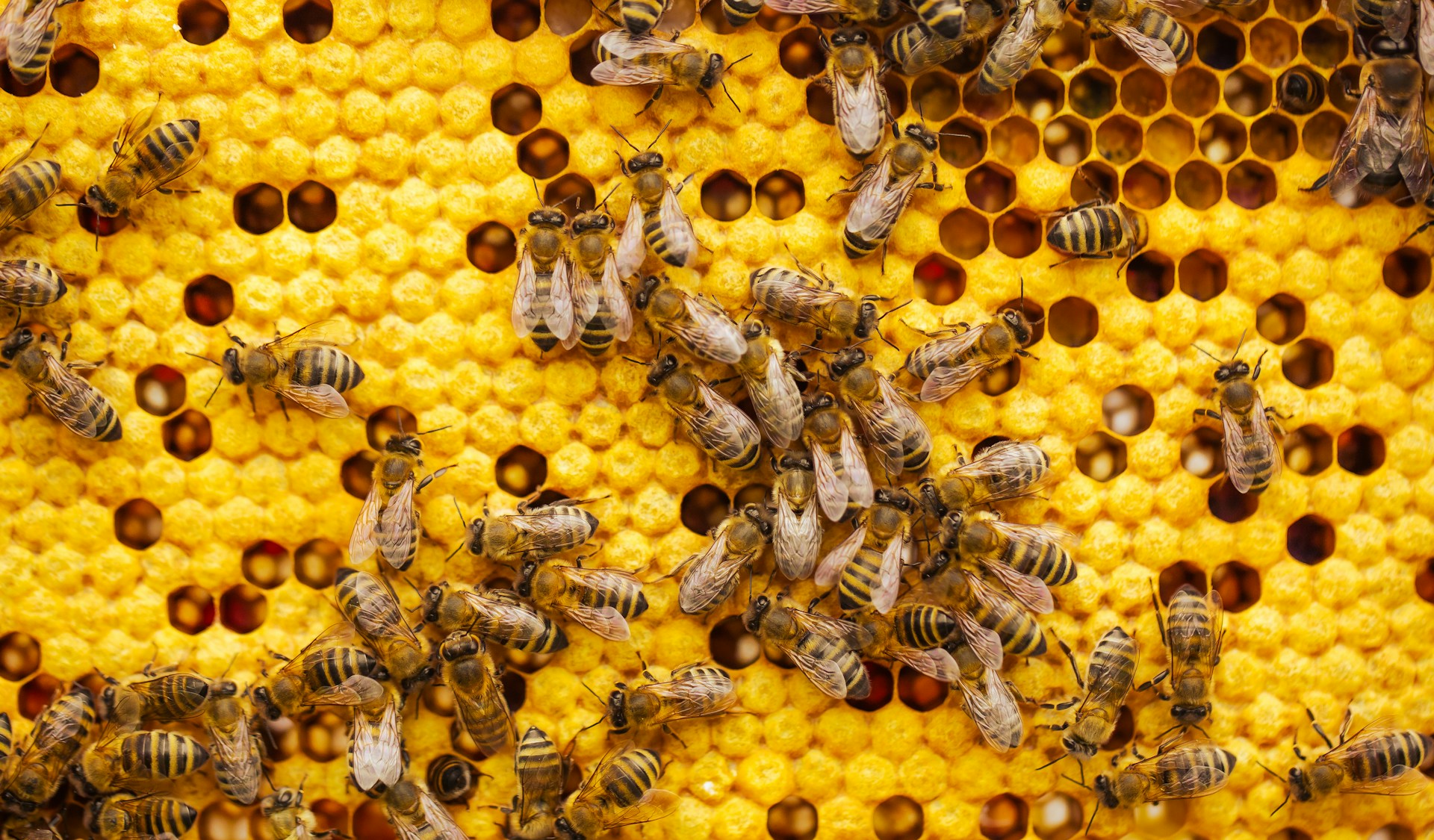The Most Recent Honey Bee News in the UK
Honeybees are important pollinators that provide many benefits to humans and the environment. They pollinate about one-third of the crops we eat, such as fruits, vegetables, nuts, and seeds. They also produce honey, wax, propolis, and other valuable products. However, honey bees are also facing many challenges and threats, such as diseases, pests, pesticides, and climate change. In this article, we will explore some of the most recent news and developments in the UK related to honey bees and how they affect their health and survival.
1/3/20243 min read



The Most Recent Honey Bee News in the UK
Honeybees are important pollinators that provide many benefits to humans and the environment.
They pollinate about one-third of the crops we eat, such as fruits, vegetables, nuts, and seeds.
They also produce honey, wax, propolis, and other valuable products. However, honey bees are also facing many challenges and threats, such as diseases, pests, pesticides, and climate change.
In this article, we will explore some of the most recent news and developments in the UK related to honey bees and how they affect their health and survival.
The Discovery of Rare Forest Honey Bees
The forest honey bees were found in the ancient woodlands of Blenheim Palace, a World Heritage Site in Oxfordshire. The forest honey bees are genetically distinct from the common honey bees that are kept by beekeepers, and are more adapted to the natural environment.
The forest honey bees are believed to be the heirs of the original British honey bees, which were wiped out by a disease called Isle of Wight disease in the early 20th century.
The disease was caused by a parasitic mite that invaded the trachea of the bees and suffocated them. The disease decimated the native honey bee population, and forced beekeepers to import honey bees from other countries, such as Italy, France, and Greece.
The discovery of the forest honey bees is a remarkable finding, as it shows that some of the native honey bees survived the disease and managed to maintain their genetic identity and diversity.
The forest honey bees are also a valuable resource for conservation and research, as they can provide insights into the evolution and adaptation of honey bees, and help improve the resilience and health of the domesticated honey bees.
The Invasion of Asian Hornets
The Asian hornets are native to Asia, but were accidentally introduced to Europe in 2004, when a shipment of pottery from China arrived in France. Since then, the Asian hornets have spread rapidly across Europe, and reached the UK in 2016.
The Asian hornets are voracious hunters, and can kill up to 50 honey bees a day. They also raid the hives of honey bees, and devour their brood and honey.
The Asian hornets can cause massive colony losses, and reduce the pollination and honey production of honey bees.
The Asian hornets can also sting humans, and cause severe allergic reactions and even death in some cases.
The UK government and the British Beekeepers Association (BBKA) are working together to prevent the establishment and spread of the Asian hornets in the UK.
They have set up a surveillance and eradication programme, which involves trapping, tracking, and destroying the nests of the Asian hornets.
They have also launched a public awareness campaign, which encourages people to report any sightings of the Asian hornets to the authorities.
The Controversy over Pesticides
Neonicotinoids are absorbed by the plants and transferred to their nectar and pollen, which are then consumed by the bees.
Neonicotinoids can affect the nervous system and the behaviour of the bees, and impair their learning, memory, orientation, and reproduction.
The UK banned the use of neonicotinoids on flowering crops in 2018, following a decision by the European Union.
However, in 2021, the UK government granted an emergency authorisation to allow the use of neonicotinoids on sugar beet, a non-flowering crop, to protect it from a virus transmitted by aphids.
The decision sparked a backlash from environmental groups and beekeepers, who argued that the use of neonicotinoids on sugar beet could still contaminate the soil and water, and affect the bees and other wildlife.
The UK government and the sugar beet industry defended the decision, saying that the use of neonicotinoids on sugar beet was limited, controlled, and monitored, and that it was necessary to prevent crop losses and ensure food security.
They also said that they were working on finding alternative and sustainable solutions to protect the sugar beet from the virus and the aphids.
Conclusion
Honey bees are amazing insects that provide us with many benefits and services, but they also face many challenges and threats, such as diseases, pests, pesticides, and climate change.
By keeping up with the most recent news and developments in the UK related to honey bees, we can learn more about their situation and their needs, and how we can help them and protect them.
We hope you enjoyed this article and learned something new about the most recent honey bee news in the UK.
If you are interested in buying pure and delicious honey from our family beekeeping business, please visit our shop.
Thank you for your support! 🐝.

